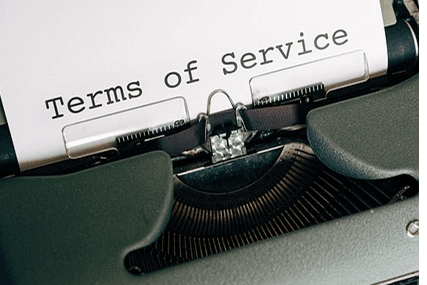Law of Services

Understanding the Legal Framework for Service Contracts
The Law of Services Workshop began with a foundational session on the legal framework governing service contracts, a cornerstone of the service industry. Participants gained insights into the essential elements of service agreements, including offer, acceptance, consideration, and mutual consent. Facilitators emphasized the importance of clarity in defining the scope of services, deliverables, timelines, and payment terms to avoid ambiguities that could lead to disputes.
Attendees also explored the legal distinctions between goods and services under commercial law, particularly how regulations like the Uniform Commercial Code (UCC) or consumer protection laws apply differently to service-based transactions. Real-world examples of poorly drafted contracts and their consequences were discussed, highlighting the need for precision and foresight when creating legally binding agreements. By the end of this segment, participants had a deeper understanding of how to structure service contracts that protect both providers and clients while ensuring enforceability in court.
Consumer Protection Laws and Ethical Compliance
A significant focus of the workshop was on consumer protection laws , which play a vital role in regulating the service industry. Facilitators walked attendees through key legislation, such as the Consumer Rights Act, Fair Trade Practices, and data privacy regulations like GDPR or CCPA, which impact how businesses interact with their clients. These laws are designed to safeguard consumers from unfair practices, misleading advertising, and inadequate service delivery.
Participants learned how to incorporate ethical compliance into their operations, ensuring transparency, fairness, and accountability in every client interaction. For example, discussions included strategies for handling customer complaints, refund policies, and warranties in a manner that aligns with legal requirements and builds trust. Attendees also examined case studies of businesses that faced lawsuits or reputational damage due to non-compliance, reinforcing the importance of adhering to consumer protection standards. This session equipped participants with practical tools to uphold ethical practices while minimizing legal risks.
Dispute Resolution Mechanisms in Service Agreements
One of the most engaging segments of the Law of Services Workshop was the session on dispute resolution mechanisms . Given the inherent complexities of service delivery, disagreements between service providers and clients are inevitable. Facilitators introduced participants to various methods of resolving disputes, including negotiation, mediation, arbitration, and litigation, explaining the pros and cons of each approach.
Attendees learned how to draft dispute resolution clauses in service contracts that specify preferred methods for conflict resolution, reducing the likelihood of costly and time-consuming legal battles. Practical exercises allowed participants to simulate negotiations and mediations, providing hands-on experience in de-escalating conflicts. The session also highlighted the growing trend of alternative dispute resolution (ADR) methods, which offer faster and more cost-effective solutions compared to traditional litigation. By mastering these techniques, attendees gained confidence in managing disputes professionally and preserving long-term client relationships.
Emerging Trends in the Law of Services
The workshop dedicated a session to exploring emerging trends that are reshaping the legal landscape for service providers. With advancements in technology, globalization, and evolving consumer expectations, new challenges and opportunities have arisen. Facilitators discussed the legal implications of digital transformation, such as e-contracts, online service delivery, and cybersecurity obligations, emphasizing the need for businesses to adapt to these changes.
Another key trend was the increasing focus on environmental, social, and governance (ESG) considerations in service agreements. For instance, attendees learned how sustainability clauses are becoming standard in contracts for industries like consulting, logistics, and hospitality. Additionally, discussions covered the rise of gig economy platforms and the unique legal challenges they pose, such as worker classification and liability issues. By staying informed about these trends, participants were better equipped to future-proof their businesses and remain compliant with evolving legal standards.
Networking and Collaborative Learning Among Participants
A standout feature of the Law of Services Workshop was the opportunity for networking and collaborative learning , which enriched the overall experience for attendees. Throughout the event, participants engaged in lively discussions, group activities, and Q&A sessions, sharing their experiences and challenges in navigating the legal aspects of service delivery. These interactions fostered a sense of community among professionals from diverse sectors, including healthcare, IT, finance, and hospitality.
Structured networking sessions, such as panel discussions and roundtable debates, provided platforms for attendees to connect with legal experts, industry leaders, and peers. For example, a small business owner might seek advice from a corporate lawyer on drafting watertight contracts, while a consultant could exchange insights on regulatory compliance with a fellow attendee. These connections not only broadened participants’ perspectives but also created opportunities for collaboration and mentorship. By the end of the workshop, many attendees expressed appreciation for the relationships they formed and the practical knowledge they gained from their peers.
